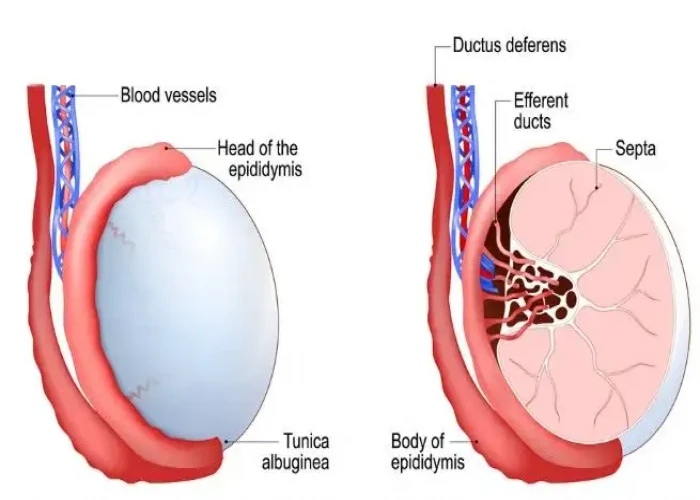 Welcome
Welcome
“May all be happy, may all be healed, may all be at peace and may no one ever suffer."
Essential tremor

Essential tremor is a neurological disorder characterized by involuntary and rhythmic shaking, usually affecting the hands and arms, but it can also affect other parts of the body such as the head, voice, and legs. The tremors can be mild to severe and can occur when a person is moving or resting.
The cause of essential tremor is not entirely understood, but it is believed to be related to the abnormal functioning of certain parts of the brain that control movement. Essential tremor is considered a progressive disorder, which means it may get worse over time.
Essential tremor usually affects older adults, but it can occur at any age. The condition is usually diagnosed based on a patient's symptoms, medical history, and physical exam.
Treatment for essential tremors may include medications such as beta-blockers, anticonvulsants, or tranquilizers to help reduce the severity and frequency of tremors. In some cases, a surgical procedure called deep brain stimulation may be recommended, which involves implanting electrodes in the brain to help control the tremors.
Living with essential tremors can be challenging, but certain lifestyle modifications such as avoiding caffeine, stress reduction, getting enough rest, and physical therapy may help manage the symptoms. Regular monitoring and follow-up with a neurologist are important for managing this condition.
Research Papers
Disease Signs and Symptoms
- Keep shaking head
- Tremors or muscle jerking
- Abnormal hand movement
Disease Causes
Essential tremor
bout half of essential tremor cases appear to result from a genetic mutation. This form is referred to as familial tremor. It isn't clear what causes essential tremor in people without a known genetic mutation.
Disease Prevents
Disease Treatments
Some people with essential tremor don't require treatment if their symptoms are mild. But if your essential tremor is making it difficult to work or perform daily activities, discuss treatment options with your doctor.
Medications
- Beta blockers. Normally used to treat high blood pressure, beta blockers such as propranolol (Inderal) help relieve tremors in some people. Beta blockers may not be an option if you have asthma or certain heart problems. Side effects may include fatigue, lightheadedness or heart problems.
- Anti-seizure medications. Epilepsy drugs, such as primidone (Mysoline), may be effective in people who don't respond to beta blockers. Other medications that might be prescribed include gabapentin (Gralise, Neurontin) and topiramate (Topamax, Qudexy XR). Side effects include drowsiness and nausea, which usually disappear within a short time.
- Tranquilizers. Doctors may use benzodiazepine drugs such as clonazepam (Klonopin) to treat people for whom tension or anxiety worsens tremors. Side effects can include fatigue or mild sedation. These medications should be used with caution because they can be habit-forming.
- OnabotulinumtoxinA (Botox) injections. Botox injections might be useful in treating some types of tremors, especially head and voice tremors. Botox injections can improve tremors for up to three months at a time.
- However, if Botox is used to treat hand tremors, it can cause weakness in your fingers. If Botox is used to treat voice tremors, it can cause a hoarse voice and difficulty swallowing.
Therapy
Doctors might suggest physical or occupational therapy. Physical therapists can teach you exercises to improve your muscle strength, control and coordination.
Occupational therapists can help you adapt to living with essential tremor. Therapists might suggest adaptive devices to reduce the effect of tremors on your daily activities, including:
- Heavier glasses and utensils
- Wrist weights
- Wider, heavier writing tools, such as wide-grip pens
Surgery
Surgery might be an option if your tremors are severely disabling and you don't respond to medications.
- Deep brain stimulation. This is the most common type of surgery for essential tremor. It's generally the preferred procedure in medical centers with significant experience in performing this surgery. Doctors insert a long, thin electrical probe into the portion of your brain that causes your tremors (thalamus). A wire from the probe runs under your skin to a pacemaker-like device (neurostimulator) implanted in your chest. This device transmits painless electrical pulses to interrupt signals from your thalamus that may be causing your tremors.
- Side effects of deep brain stimulation can include equipment malfunction; problems with motor control, speech or balance; headaches; and weakness. Side effects often go away after some time or adjustment of the device.
- Focused ultrasound thalamotomy. This noninvasive surgery involves using focused sound waves that travel through the skin and skull. The waves generate heat to destroy brain tissue in a specific area of the thalamus to stop a tremor. A surgeon uses magnetic resonance imaging to target the correct area of the brain and to be sure the sound waves are generating the exact amount of heat needed for the procedure.
- Focused ultrasound thalamotomy creates a lesion that can result in permanent changes to brain function. Some people have experienced altered sensation, trouble with walking or difficulty with movement. However, most complications go away on their own or are mild enough that they don't interfere with quality of life.
Disease Diagnoses
Disease Allopathic Generics
Disease Ayurvedic Generics
Disease Homeopathic Generics
Disease yoga
Essential tremor and Learn More about Diseases

Scrotal masses

Dissociative disorders

Bronchiolitis

Behcet's disease

Angelman syndrome

Social anxiety disorder (social phobia)

Autoimmune pancreatitis

Wilms' tumor
essential tremor, প্রয়োজনীয় কাঁপুনি
To be happy, beautiful, healthy, wealthy, hale and long-lived stay with DM3S.
